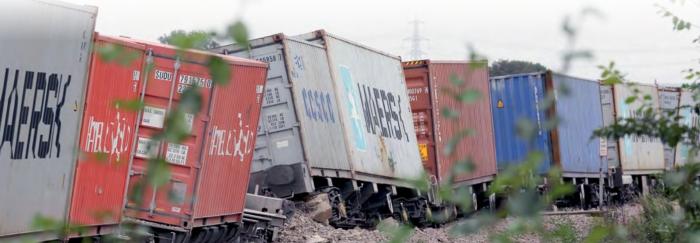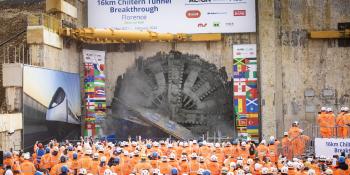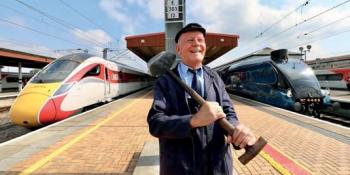THE OFFICE of Rail and Road has called on Network Rail to improve its efficiency as it publishes its annual review of the company for 2016-17.
Of particular concern to ORR is deferral of a significant proportion of renewals into the next funding period. Work to the value of £992 million has not been completed, with £800 million of renewals work deferred. ORR says this means NR has underperformed against its budget by £335 million on renewals and £140 million on enhancements. The underperformance on renewals was largely due to less track work being delivered by high output plant than planned, while enhancements underperformance was due to increased contract costs, supply chain constraints and access issues.
NR has spent more than expected on renewals and enhancements during each of the first three years of Control Period 5 (2014-19) and is forecasting to do so again during the remaining two years, which ORR says places pressure on NR’s borrowing facility with the Department for Transport. So far, £3.7 billion of renewals has been deferred to CP6, which is 25% of the current budget for renewals during CP5. NR’s net debt at the end of 2016-17 stood at £44.8 billion.
Overall, NR’s efficiency for 2016-17 was -5.0% for the control period to date, and the forecast efficiency for the whole of CP5 is -1.5%. This is below ORR’s assumption of a 13.7% improvement by the end of the third year and a 19.4% improvement across the five-year period.
In terms of enhancements, NR delivered 27 out of 41 milestones in its enhancements delivery plan during 2016-17. The two significant milestones missed were on the Edinburgh Glasgow Improvement Programme (EGIP), where wiring was due to be completed on the route via Falkirk, and the Gospel Oak to Barking line, where NR failed to complete electrification works during an extended blockade of the line.
In terms of performance, the public performance measure (PPM) moving annual average stood at 87.4% at the end of the year, short of NR’s internal target of 89.9% and the regulated target of 92.3%; it is also down on the 2015-16 figure of 88.9%. Areas of strong performance were on Virgin Trains West Coast and TfL Rail, but ORR highlights concern about NR’s delivery to Virgin Trains East Coast, Southeastern, Govia Thameslink Railway and South West Trains.
ORR publishes a separate monitor on Network Rail Scotland’s performance. North of the border NR overspent its budget by £31 million, largely due to £69 million higher enhancements expenditure, of which £60 million relates to EGIP and the rolling programme of electrification (covering the Shotts, Rutherglen-Coatbridge and Stirling-Alloa lines). The increased expenditure is because the initial designs were found to be non-compliant with the minimum legal requirements for electrical clearances, meaning a large volume of redesign and redelivery has been required.
For renewals, there was a net underspend of £30 million, with £46 million of work deferred to CP6.





